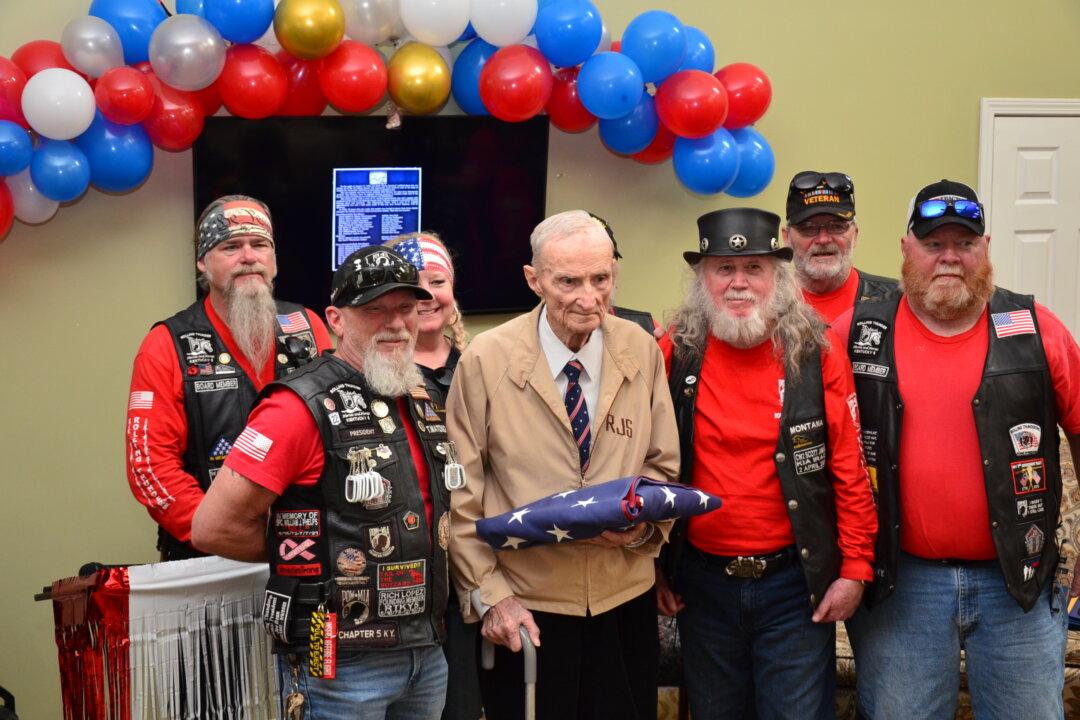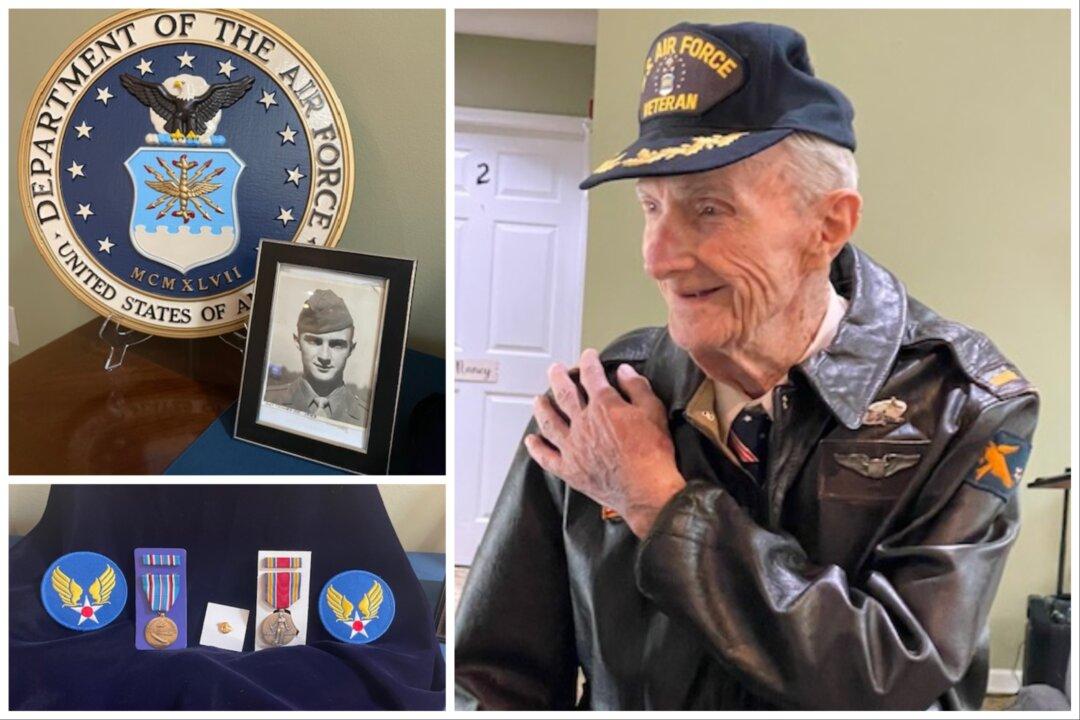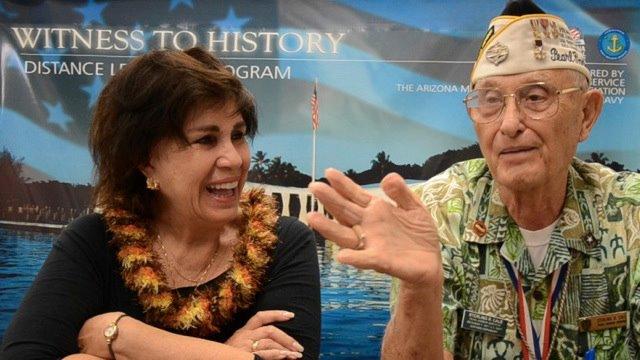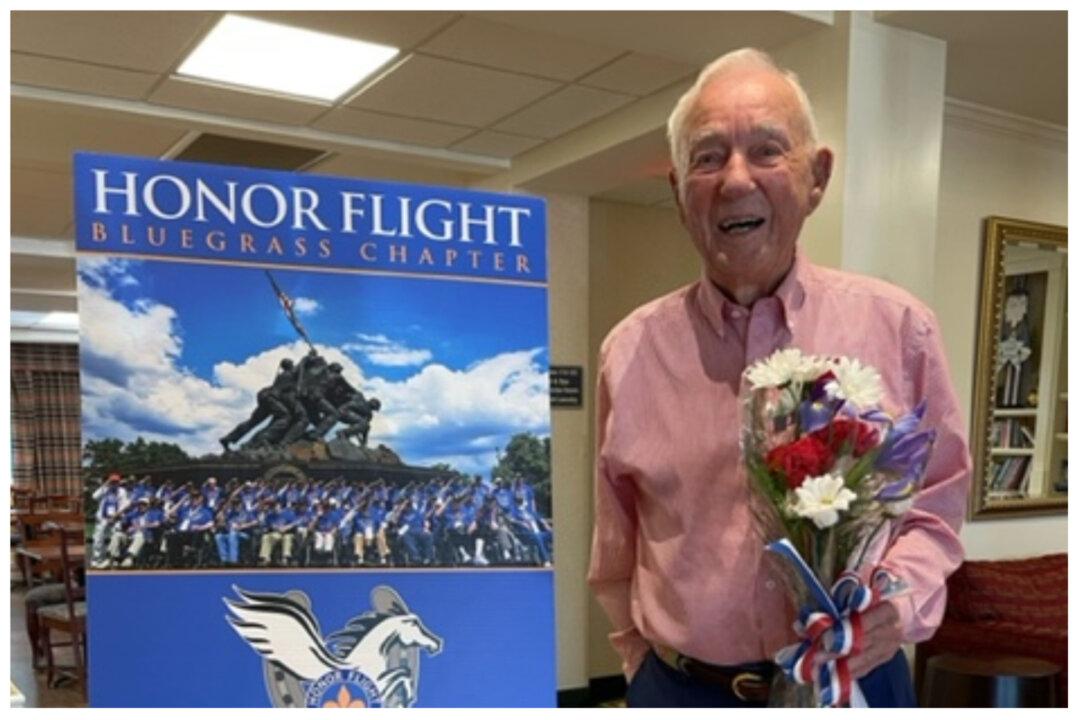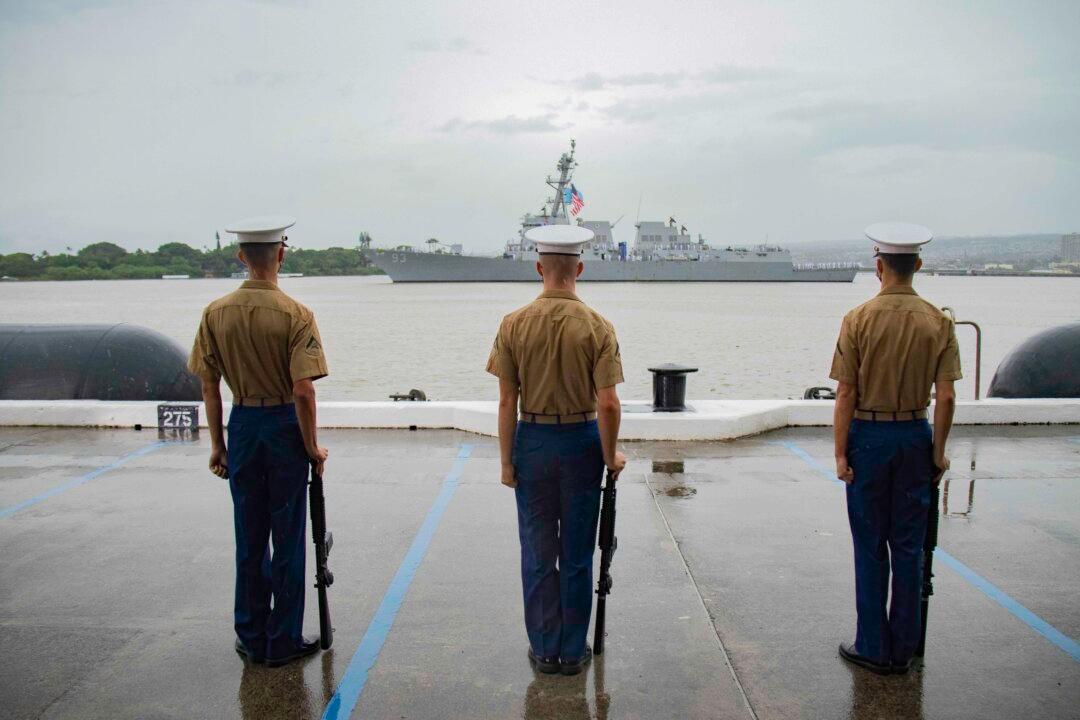U.S. Army Air Force veteran Edwin Smith celebrated his 100th birthday on April 12, and the community of Barren County, Kentucky, stepped forward to honor him with pomp and circumstance.
Reserve Officers’ Training Corps members at Barren County High School posted flags and presented a folded American flag on behalf of a grateful nation. Letters from elected officials and civic organizations were read. Hundreds of people mailed cards. Schoolchildren created cards filled with birthday greetings and messages of patriotic pride.

